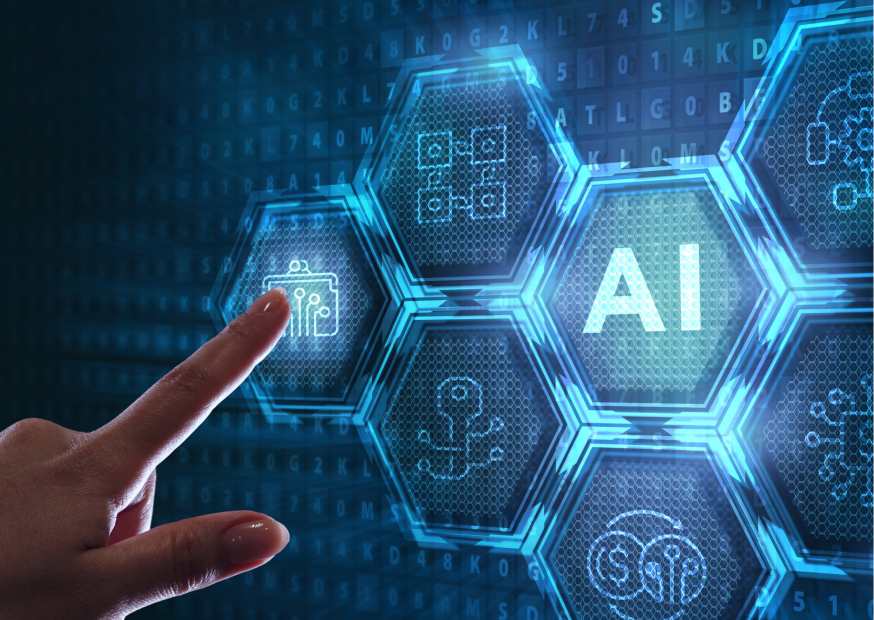- marketing admin
- Articles
Enhancing Production, Cutting Costs, and Reducing Carbon
Artificial Intelligence (AI) has emerged as a transformative force across industries, offering immense potential for revitalizing the manufacturing sector. By leveraging advanced algorithms, machine learning, and automation, AI can enhance production processes, reduce costs, and mitigate the environmental impact of industrial operations. This article explores the multifaceted role of AI in industrial revitalization, focusing on its applications in production enhancement, cost reduction, and carbon emission reduction.
Enhancing Production and Cost Reduction with AI
AI plays a pivotal role in optimizing and enhancing production in various industries. By analyzing vast amounts of data from sensors, machinery, and supply chains, AI algorithms can identify patterns, predict failures, and optimize production schedules. Predictive maintenance systems powered by AI can detect potential equipment malfunctions, enabling proactive maintenance, minimizing downtime, and maximizing productivity. Additionally, AI-driven robotics and automation can streamline assembly lines, leading to increased production speed, efficiency, and accuracy.
AI offers specific applications to reduce production costs while maintaining or improving product quality. One such application is predictive analytics, which enables accurate demand forecasting, inventory management, and procurement optimization. By leveraging AI algorithms, manufacturers can optimize supply chain operations, reduce costs associated with overstocking or stockouts, and enhance overall efficiency. Furthermore, AI-powered quality control systems can identify defects or anomalies in real-time, preventing waste, minimizing rework, and improving product quality.
AI and Carbon Emission Reduction
AI technologies have the potential to significantly contribute to reducing carbon emissions in industrial processes, thereby promoting sustainability. AI can optimize energy usage by analyzing historical data and real-time inputs, enabling efficient allocation and consumption. By implementing AI-based energy management systems and smart grids, industries can minimize energy waste and maximize the integration of renewable energy sources. Additionally, AI algorithms can optimize transportation logistics, reducing fuel consumption and greenhouse gas emissions by optimizing routes, load capacities, and vehicle scheduling.
Notable Success Stories and Case Studies
Numerous success stories highlight the transformative impact of AI on industrial revitalization. For instance, a steel manufacturer implemented AI-powered predictive maintenance systems, resulting in a 30% reduction in machine downtime and saving millions of dollars annually. In the automotive industry, AI-driven robotics and automation have led to significant increases in production output while maintaining stringent quality standards. AI has also been employed to optimize energy usage in manufacturing facilities, resulting in substantial carbon emission reductions.
One noteworthy example is a global food processing company that used AI algorithms to optimize its production lines. By analyzing real-time data, the AI system identified inefficiencies and bottlenecks, enabling the company to streamline its operations, increase output, and reduce energy consumption. As a result, the company achieved a significant reduction in its carbon footprint and saved costs associated with energy usage.
Another case study involves a semiconductor manufacturer that implemented AI-based quality control systems. The AI algorithms analyzed real-time data from production processes, identifying potential defects and anomalies. This enabled the company to identify and rectify issues promptly, minimizing rework, reducing waste, and improving overall product quality. By adopting AI-driven quality control, the manufacturer experienced a substantial reduction in production costs while maintaining high-quality standards.
Challenges and Limitations in AI Implementation
While the potential of AI in industrial revitalization is promising, there are several challenges and limitations to consider. Firstly, the collection and management of vast amounts of data required for AI algorithms can be complex and resource-intensive. Companies need robust data governance frameworks to ensure data quality, privacy, and security. Additionally, integrating AI technologies into existing production systems may require significant upfront investments and organizational restructuring. Companies must carefully evaluate costs, benefits, and potential risks associated with AI implementation.
Moreover, addressing the shortage of skilled AI professionals is crucial. Upskilling the existing workforce and attracting AI talent are essential to fully leverage AI capabilities. Collaboration between industry, academia, and government agencies can play a vital role in providing training programs and fostering innovation in AI technology.
The integration of AI into industrial processes holds tremendous promise for enhancing production, reducing costs, and mitigating carbon emissions. By leveraging AI technologies, industries can optimize operations, make data-driven decisions, and achieve sustainability goals. However, addressing challenges such as data management, implementation costs, and workforce transformation is vital to unlocking the full potential of AI in revitalizing industries. With continued innovation and strategic adoption, AI can be a driving force in transforming industries, creating a more efficient, cost-effective, and environmentally sustainable manufacturing sector.





